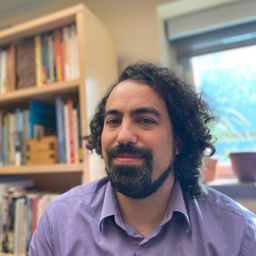
Sarah F Scarlett
I am a social historian who privileges architecture, landscapes, objects, and artworks in my research, public interpretation, and teaching strategies. My recent book Company Suburbs: Architecture, Power, and The Transformation of Michigan's Mining Frontier (Univ of Tennessee Press 2021) investigates space, materiality, and mobility in domestic landscapes to explore complex social identities in America between 1875 and 1920. I focus on Michigan’s Copper Country as a case study for using overlapping social landscapes as a framework for place-based examinations of class and gender identities. By documenting well-preserved late nineteenth-century patternbook houses, and contextualizing their suburban neighborhoods in a modernizing industrial community, my work implicates buildings and landscapes in the development of relational class identities and acts of resistance. Another area of my research examines the roles of digital spatial tools in community-engaged heritage projects. I co-direct the NEH-sponsored historical GIS of the Copper Country called the Keweenaw Time Traveler, which asks “Citizen Historians” to contribute their own knowledge about landscape change over time and to help process additional historical data. In my undergrad courses, students add their research with primary documents and material evidence to this growing "deep map" to learn place-based digital storytelling. These projects are demonstrating the value – both pedagogical and scholarly – of combining mobile-enabled HGIS projects with techniques in community-engaged scholarship to create active learning opportunities.
Sessions auxquelles Sarah F Scarlett participe
Mardi 30 Août, 2022
Jeudi 1 Septembre, 2022
The use of industrial heritage is a profoundly important factor in the process of creating a sustainable economic, social, and political future for many communities occupying industrial heritage landscapes. More than ever we recognize the need for such communities to be capable of shaping and expressing their heritage in different forms in the context of current events and issues, and in doing so to inform both contemporary decision-making as well as the way their industrial heritage is re...
Sessions auxquelles Sarah F Scarlett assiste
Lundi 29 Août, 2022
This session presents case studies and policy reviews that contribute to ongoing debate and international dialogue on the role of planning systems and conservation practices in addressing the challenges of citizen engagement—conserving local interests, place attachments alongside physical remnants of industrial heritage. Over the past half century, we have witnessed the development and changing focuses of urban planning and conservation discourses addressing industrial heritage. Relevant p...
Patrimoine industriel et photographie entretiennent des relations étroites. La photographie constitue une source de l’archéologie industrielle. Elle permet d’éclairer les liens entre les hommes, leurs outils, leurs machines et leurs lieux de travail. Elle est également, une fois l’activité industrielle terminée, un outil de documentation et d’étude des sites. Mais bien au-delà, saisie par des artistes capables de transcender les représentations communes, conférant aux vestiges industriels ...
Mardi 30 Août, 2022
Drawing on case studies from diverse social, cultural, and political contexts the papers in this session discuss the different responses to maintaining and assessing not only the physical sustainability of industrial heritage but also the sustainability of its social values and meaning.



